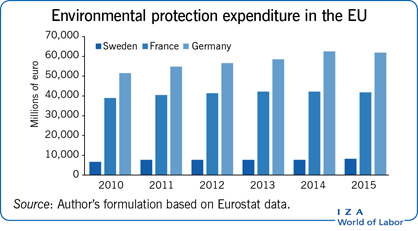India - Environmental Technology
India is grappling with significant challenges in air, water and waste management. The legislative framework is strong, but enforcement is relatively weak. Half of the world's 20 most polluted cities are in India, according to World Health Organization’s Global Urban Ambient Air Pollution 2016 database. About 62 million tons of municipal solid waste is generated each year in the 468 cities of over 100,000 people; only 70 percent is collected and only 23 percent is processed or treated. While 94 percent of Indians have access to drinking water, just under 40 percent of the population has access to a sanitary wastewater system, a disparity that reflects the need for wastewater treatment systems. Almost 63 percent of municipal wastewater and 40 percent of industrial wastewater is left untreated and discharged. 30-40 percent of India’s industrial units produce sizeable quantities of pollutants. There are about 3 million small-scale enterprises in the country and most of these are using minimal or no pollution control equipment. The Government of India has classified 60 industry categories as highly polluting; these sectors are subject to stringent standards. The Indian Parliament passed the National Green Tribunal Act in 2010, which led to the creation of the National Green Tribunal. Its purpose is the effective and expeditious processing of cases relating to environmental protection. Orders of the Green Tribunal are driving many of the recent environment management initiatives.
The Indian pollution control industry consists of many specialized equipment suppliers, chemical suppliers, engineering-procurement-construction (EPC) contractors, consultants, build-own-operate and transfer (BOOT)/build-own-operate (BOO) operators, analytical equipment and services companies.
Water and wastewater is the most promising sub-sector in India’s environmental segment. This accounts for 26 percent of India’s environmental technologies industry and is expected to grow 13-15 percent every year over the next five years. The government is primarily involved in the treatment of raw water, water transmission and distribution and sewage treatment operations. The private sector industries in power, food and beverage, chemicals, pharmaceuticals, refineries and textiles sectors. These industries prefer advanced treatment technological systems such as reverse osmosis membranes for treating their wastewater. The water treatment market is gradually shifting from chemical treatment and demineralization plants to membrane technology. The concept of wastewater recycling and zero discharge systems is becoming more widely accepted as new technologies such as sequencing batch reactor (SBR) and membrane bioreactor (MBR) based treatment gain in adoption.
